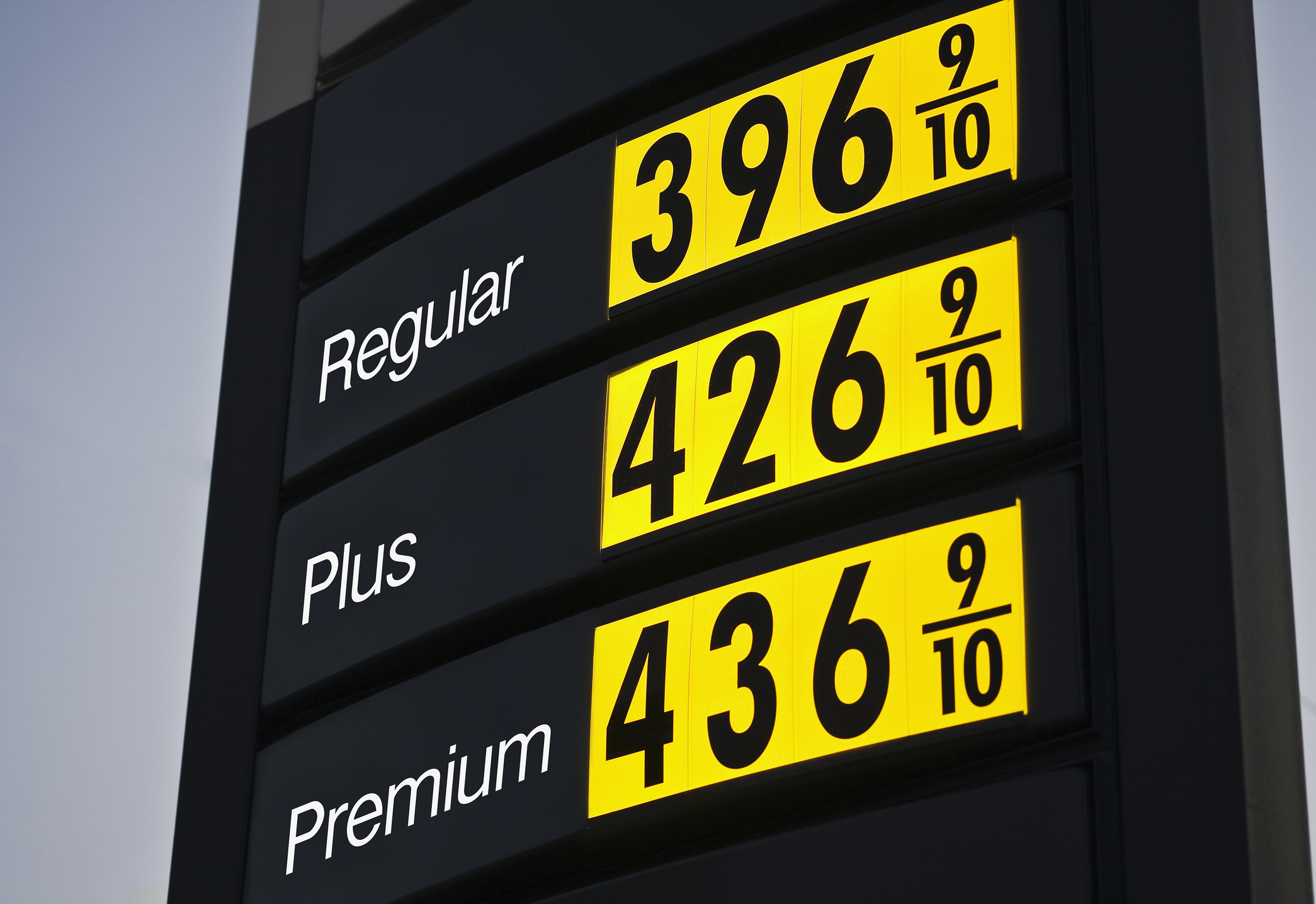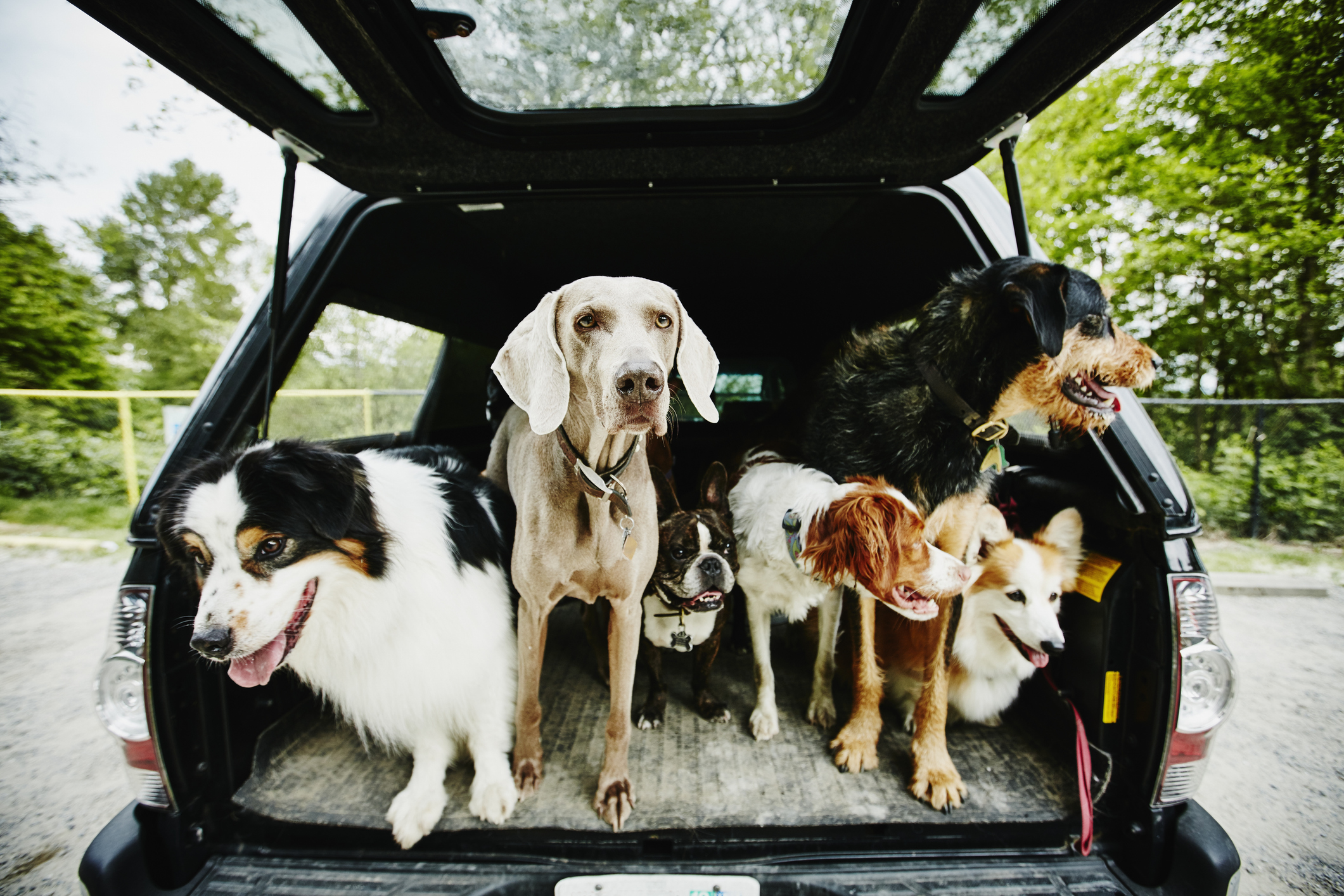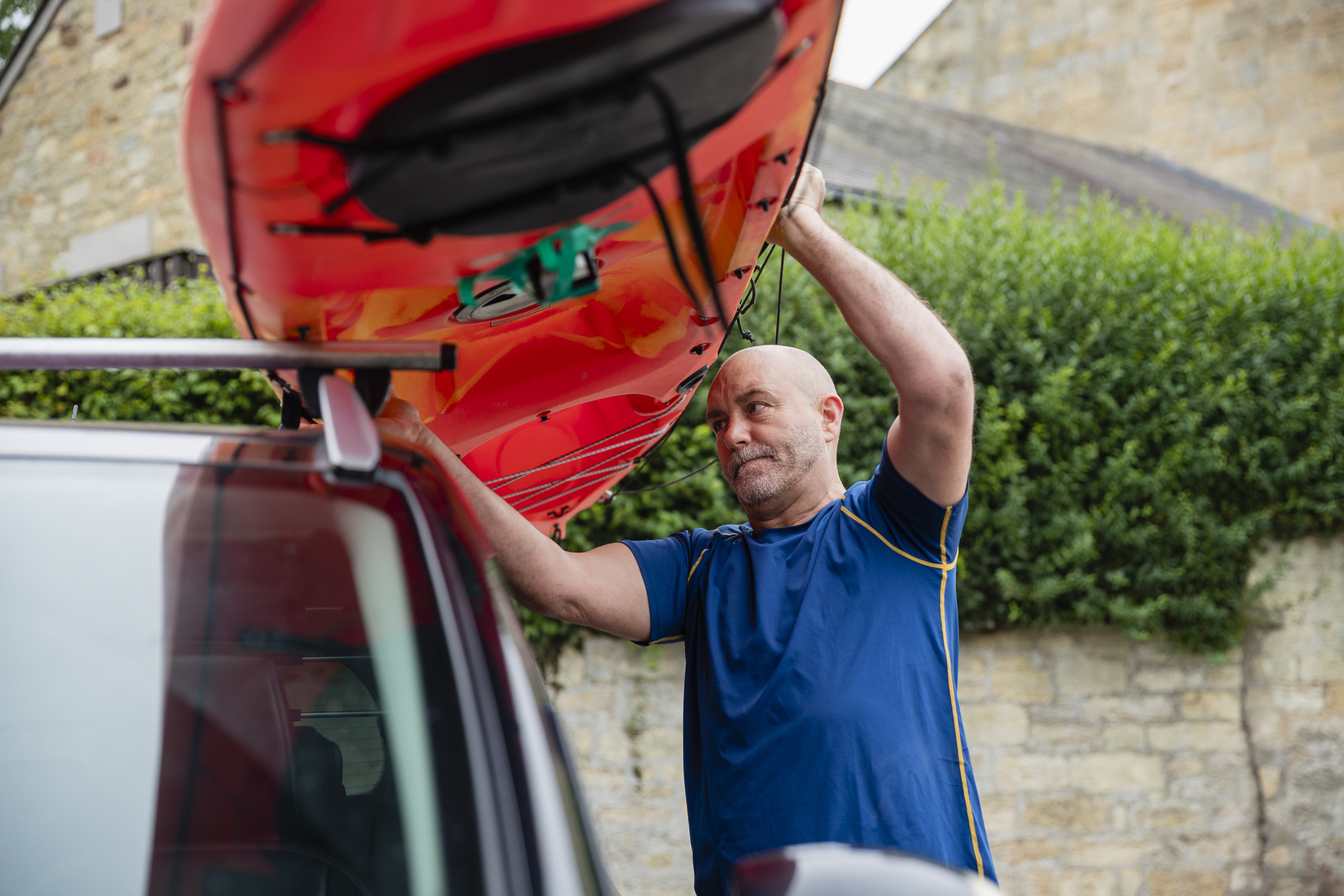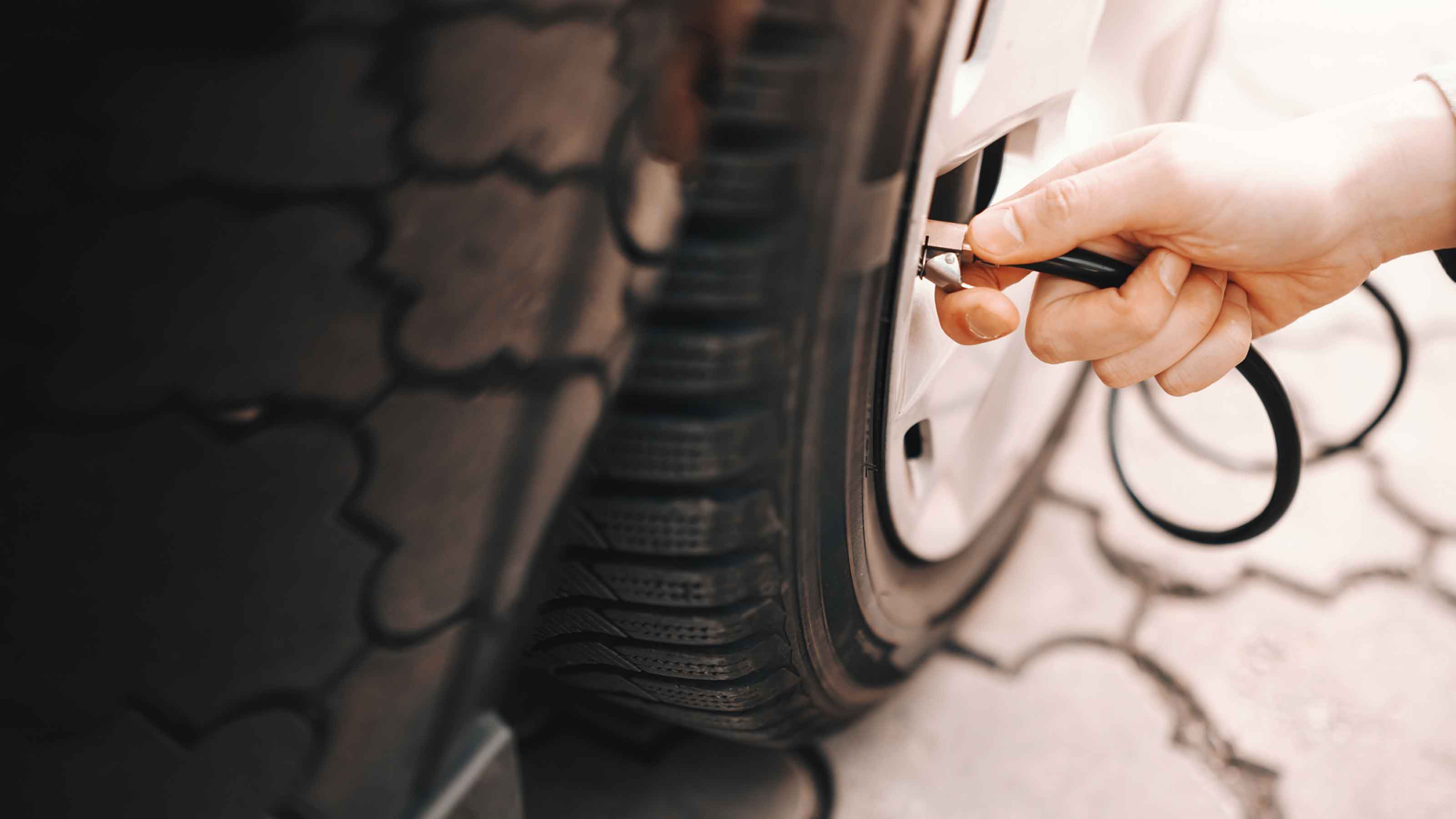7 Gas-Saving Tips That Actually Work
When fuel prices rise, all kinds of gas-saving schemes get floated. We separate the serious from the silly for you.

Ben Demers

Profit and prosper with the best of Kiplinger's advice on investing, taxes, retirement, personal finance and much more. Delivered daily. Enter your email in the box and click Sign Me Up.
You are now subscribed
Your newsletter sign-up was successful
Want to add more newsletters?

Delivered daily
Kiplinger Today
Profit and prosper with the best of Kiplinger's advice on investing, taxes, retirement, personal finance and much more delivered daily. Smart money moves start here.

Sent five days a week
Kiplinger A Step Ahead
Get practical help to make better financial decisions in your everyday life, from spending to savings on top deals.

Delivered daily
Kiplinger Closing Bell
Get today's biggest financial and investing headlines delivered to your inbox every day the U.S. stock market is open.

Sent twice a week
Kiplinger Adviser Intel
Financial pros across the country share best practices and fresh tactics to preserve and grow your wealth.

Delivered weekly
Kiplinger Tax Tips
Trim your federal and state tax bills with practical tax-planning and tax-cutting strategies.

Sent twice a week
Kiplinger Retirement Tips
Your twice-a-week guide to planning and enjoying a financially secure and richly rewarding retirement

Sent bimonthly.
Kiplinger Adviser Angle
Insights for advisers, wealth managers and other financial professionals.

Sent twice a week
Kiplinger Investing Weekly
Your twice-a-week roundup of promising stocks, funds, companies and industries you should consider, ones you should avoid, and why.

Sent weekly for six weeks
Kiplinger Invest for Retirement
Your step-by-step six-part series on how to invest for retirement, from devising a successful strategy to exactly which investments to choose.
Everyone's thinking about those sweet summer drives — and the not-so-sweet gas pump bills that fuel them, particularly as conflict continues in the Middle East.
Drivers have taken a hit in recent years with rough gas prices, but we may have a bit of a respite. Despite the ongoing turmoil in the Middle East, prices have stayed down, continuing a trend positive for drivers in recent years. As of late June 2025, regular gas prices nationally are $3.226 on average, down from $3.468 this time last year. That's down significantly from a peak in 2022, when prices went above $5.
But while we're getting a break at the pump, inflation has continued to make the cost of living high across the country. Car prices are rising with tariffs, as are the costs of car insurance. Because of that, it's worth taking note of ways to save on gas. If you use less fuel, you'll need to fuel up less frequently, saving you money.
So use these seven gas-saving tips to make your overall car ownership cost a smaller slice of your spending pie.

Get the junk out of the trunk
Carmakers spend a lot of engineering hours trying to reduce the weight of today's vehicles. Don't undermine their efforts — and the gas savings they represent — by leaving unnecessary items in the luggage compartment, on the back seat or in the bed.
Golf clubs are a common violator, but so is random dead weight like those boxes of books you keep meaning to donate. Or, dear lord, a case of individual water bottles for after-workout hydration.
Do you drive a vehicle with three rows of seats — and never use that third row? It's quite possible you can remove that third row and leave the seats in the garage until needed. These can weigh 30 pounds or more.
Every time you accelerate, you're using fuel to get your car, your passengers and all that junk up to speed with you. And frankly, every time you brake, you're turning that energy into heat. How much gas are you wasting by having extra weight in your car? This depends on your car, but the EPA estimates 1% in fuel mileage reduction per 100 pounds. On a per-gallon cost basis, that's about $0.03, using current EPA baseline figures.
Get your trunk in order and you'll save money, too.

Get the rack off the roof
When they're not worrying about the weight of their designs, auto engineers fret about the aerodynamics. Improvements to how your car slips through the air matter most at high speeds, a.k.a. highway miles. The most common way drivers hurt their aerodynamics — and thus gas mileage — is by putting items on the roof.
Do you have activities (cycling, skiing, going down to the beach house) that mandate a lot of equipment? Consider whether you could use a hitch-mounted rack or box instead. Tucking the load into the slipstream of your car will save fuel.
If you must put items on the rooftop (perhaps your kayak?), remove the rack when you can. And, finally, if your vehicle came with a factory roof rack that you never use, see if you can remove the crossbars. You'll save a few pounds this way, too.
The EPA estimates that using a "large, blunt roof-top cargo box" can save fuel by up to 25% on the Interstate. This could see savings of $0.06 to $0.53 per gallon.

Combine your trips
This sounds like a nag, like being told not to use the trunk for storage. "If life weren't so crazy, I’d be doing that already!"
We know. Still, we will repeat the reasons why planning ahead can save gas:
- Grouping trips means fewer miles driven, so that's obvious.
- But even if you have to go in multiple directions, all non-electric cars use more fuel when the engine is cold. So the fewer times you need to bring the engine up to temperature, the better. Cold starts aren't good for your car (or the environment, for that matter).

Don't let your car idle
Americans continue to wildly overestimate how much fuel it takes to start an engine versus to keep it running. The reality is, once you're stopped, your car is wasting fuel after about 7-10 seconds of idling.
That's why newer gas cars (and virtually all hybrids) have a feature that shuts the internal combustion engine off during stops when the brake is applied. The car's still "on," but the engine isn't. Push the pedal and the engine snaps back on and off you go. The feature annoys some people — and in truth the smoothness of the systems varies among vehicles — but the gas savings are real.
If you want to maximize mileage, don't disable the auto on-off feature. And everyone can stop leaving their car on while running back into the house or running a short errand. You're not running a bank job — and it's a prime way to get carjacked.

Drive slowly. Errr, wisely!
No list of gas-saving tips would be complete without the admonition to slow down. There's no getting around the fact that lower speeds require less fuel, mostly because aerodynamic resistance increases with the square of speed.
So, that's the lecture. But driving to save fuel doesn't have to be a dull crawl in the slow lane. Try thinking of it this way: Brakes turn your money into heat, so can you avoid using them?
This isn't meant to encourage dangerous behavior like not stopping for stop signs or the like. Rather, tune your anticipation skills. Look down the road farther, and coast down by lifting your foot off the accelerator when you know that traffic signal's going to change to red. You might actually find it rewarding. Bonus: You'll be a safer driver, too, which could help with those insurance costs.
While hybrid and electric vehicles are best equipped to take advantage of this approach (through regenerative braking), many conventional gas cars now engage power-sapping accessories like the alternator during coast-down to maximize fuel efficiency.
As for accelerating, if you know you're going to be holding a higher speed for a while, like when you're merging onto a highway, go ahead and push the gas as hard as you need. Not only is slow acceleration in this situation potentially dangerous, it doesn't actually save fuel.

Don't rely on the tire light
All cars built since 2007 have what's called Tire Pressure Monitoring Systems (TPMS). These do what the name says: Monitor that your tires have air pressure.
The hitch is this: That light may not come on until a tire is more than 25% lower than the recommended pressure. And if you wait for that, you're potentially endangering yourself (an underinflated tire can compromise your car's handling or even lead to a tire blowout) and wasting money (underinflated tires reduce your gas mileage by roughly 0.2% per pound that they're low).
Doesn’t sound like much, but try this math: If your recommended inflation pressure is 40 psi, and you're 25% low on air, that's a 2% hit to your gas mileage. Plus, underinflated tires wear more quickly and unevenly, reducing your tire life.
There's just no substitute for buying a decent-quality tire gauge (between $5 and $15) and using it at least once a month. Even if you can figure out how to get your vehicle's TPMS to show each tire's individual pressure on your information screen, we'd still backstop this with a handheld gauge.

Embrace fuel-saving apps (and join the club)
Finding the cheapest fuel can be sport for some. But phone apps like Gas Buddy and Gas Guru make it almost too easy to find the best gas deals. Since you can use them to screen for brands, you can also make sure you're getting good quality fuel, which, in the long run, matters to the health of your car.
Joining a membership club like Costco or Sam's Club for gas savings could also pay off. Figuring how quickly you'll recoup your membership cost with the per-gallon savings on their discounted fuel is pretty easy math.
Related Content
Profit and prosper with the best of Kiplinger's advice on investing, taxes, retirement, personal finance and much more. Delivered daily. Enter your email in the box and click Sign Me Up.

In his former role as Senior Online Editor, David edited and wrote a wide range of content for Kiplinger.com. With more than 20 years of experience with Kiplinger, David worked on numerous Kiplinger publications, including The Kiplinger Letter and Kiplinger’s Personal Finance magazine. He co-hosted Your Money's Worth, Kiplinger's podcast and helped develop the Economic Forecasts feature.
- Ben DemersAudience Engagement Manager, Kiplinger.com
-
 Dow Adds 1,206 Points to Top 50,000: Stock Market Today
Dow Adds 1,206 Points to Top 50,000: Stock Market TodayThe S&P 500 and Nasdaq also had strong finishes to a volatile week, with beaten-down tech stocks outperforming.
-
 Ask the Tax Editor: Federal Income Tax Deductions
Ask the Tax Editor: Federal Income Tax DeductionsAsk the Editor In this week's Ask the Editor Q&A, Joy Taylor answers questions on federal income tax deductions
-
 States With No-Fault Car Insurance Laws (and How No-Fault Car Insurance Works)
States With No-Fault Car Insurance Laws (and How No-Fault Car Insurance Works)A breakdown of the confusing rules around no-fault car insurance in every state where it exists.
-
 No-Fault Car Insurance States and What Drivers Need to Know
No-Fault Car Insurance States and What Drivers Need to KnowA breakdown of the confusing rules around no-fault car insurance in every state where it exists.
-
 7 Frugal Habits to Keep Even When You're Rich
7 Frugal Habits to Keep Even When You're RichSome frugal habits are worth it, no matter what tax bracket you're in.
-
 How Much It Costs to Host a Super Bowl Party in 2026
How Much It Costs to Host a Super Bowl Party in 2026Hosting a Super Bowl party in 2026 could cost you. Here's a breakdown of food, drink and entertainment costs — plus ways to save.
-
 3 Reasons to Use a 5-Year CD As You Approach Retirement
3 Reasons to Use a 5-Year CD As You Approach RetirementA five-year CD can help you reach other milestones as you approach retirement.
-
 How to Watch the 2026 Winter Olympics Without Overpaying
How to Watch the 2026 Winter Olympics Without OverpayingHere’s how to stream the 2026 Winter Olympics live, including low-cost viewing options, Peacock access and ways to catch your favorite athletes and events from anywhere.
-
 Here’s How to Stream the Super Bowl for Less
Here’s How to Stream the Super Bowl for LessWe'll show you the least expensive ways to stream football's biggest event.
-
 The Cost of Leaving Your Money in a Low-Rate Account
The Cost of Leaving Your Money in a Low-Rate AccountWhy parking your cash in low-yield accounts could be costing you, and smarter alternatives that preserve liquidity while boosting returns.
-
 This Is How You Can Land a Job You'll Love
This Is How You Can Land a Job You'll Love"Work How You Are Wired" leads job seekers on a journey of self-discovery that could help them snag the job of their dreams.
